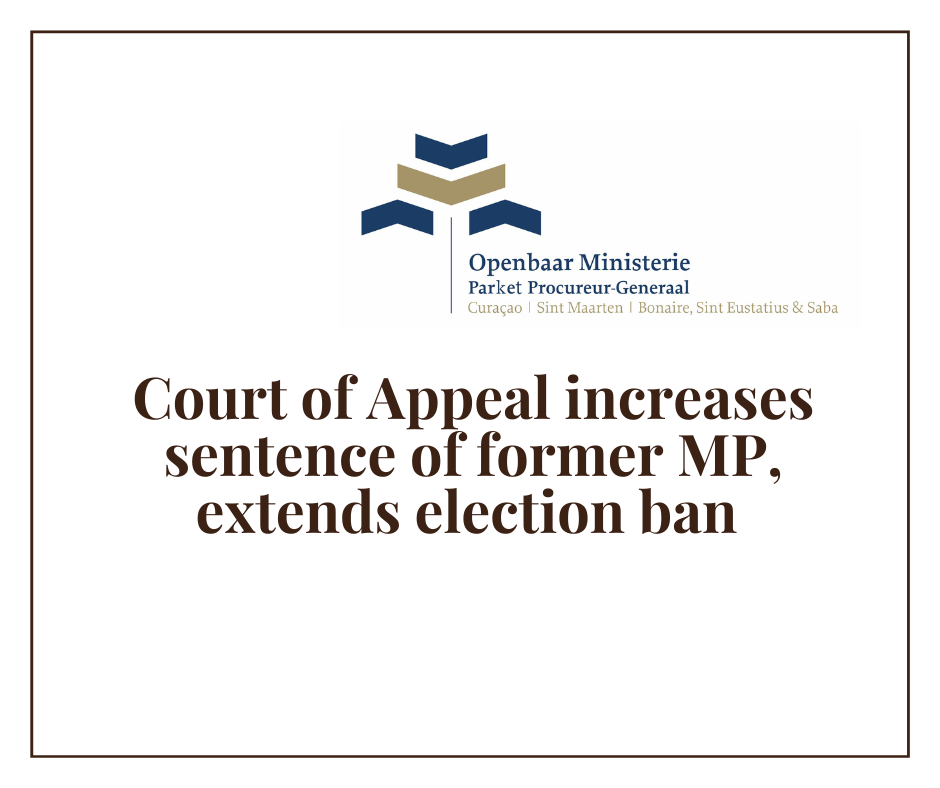Court of Appeal increases sentence of former MP, extends election ban
The Court of Appeal has increased the prison sentence and election ban of former Sint Maarten Member of Parliament F.R. , who was convicted for corruption, bribery, and conflict of interest in the Aquamarine II case. This case pertains to the construction of the Bureau Telecommunication and Post (BTP) building and its maintenance contract.

F.R. is sentenced to 20 months in prison. One month of those was deducted by the Court of Appeal for undue delay in the handling of the case. The Court of First Instance had sentenced F.R. to imprisonment of 12 months. The Solicitor-General had demanded an increase in the sentence to 17 months.
Similarly, the Court of Appeal also increased the ban barring F.R. from running in an election. He has been banned for five year from executing his right to be voted for in an election. This means he cannot be a candidate vying for a parliamentary seat for that person. The Court of First Instance had banned him for three year and in the appeal pleadings the SG demanded 3.5 years.
The Court of Appeal has affirmed the Court of First Instance's verdict in F.R.'s dispossession case. F.R. is required to pay NAf 192,690 into the “Crime Funds” as restitution for unlawfully acquired gains during his parliamentary tenure. These gains originated from F.R. serving as a shareholder of Actis, which was awarded the contract for implementing Sint Maarten's new telephone numbering plan, and from the proven bribery. F.R. was the chairman of the Parliament’s Permanent Committee for Tourism, Economic Affairs, Transportation and Telecommunication.
In its verdict, of January 24, 2024, the Court of Appeal took into account that F.R “was guilty of accepting bribes as a Member of Parliament over a long period of almost six years.” By this act, he “has caused serious reputational damage to the prestige of the office purely for his own gain.”
The Court of Appeal agreed with the SG “that it is particularly bad that the suspect asked a businessman for a bribe on his own initiative. This businessman has therefore felt forced for years to pay large sums of money to the suspect in order to obtain or retain a ‘fair seat at the table’.” By doing such, F.R. “has abused his parliamentary influence. In addition, the suspect enriched himself by accepting dividends while he had been indirectly partly assigned the supervision of that dividend-paying company.”